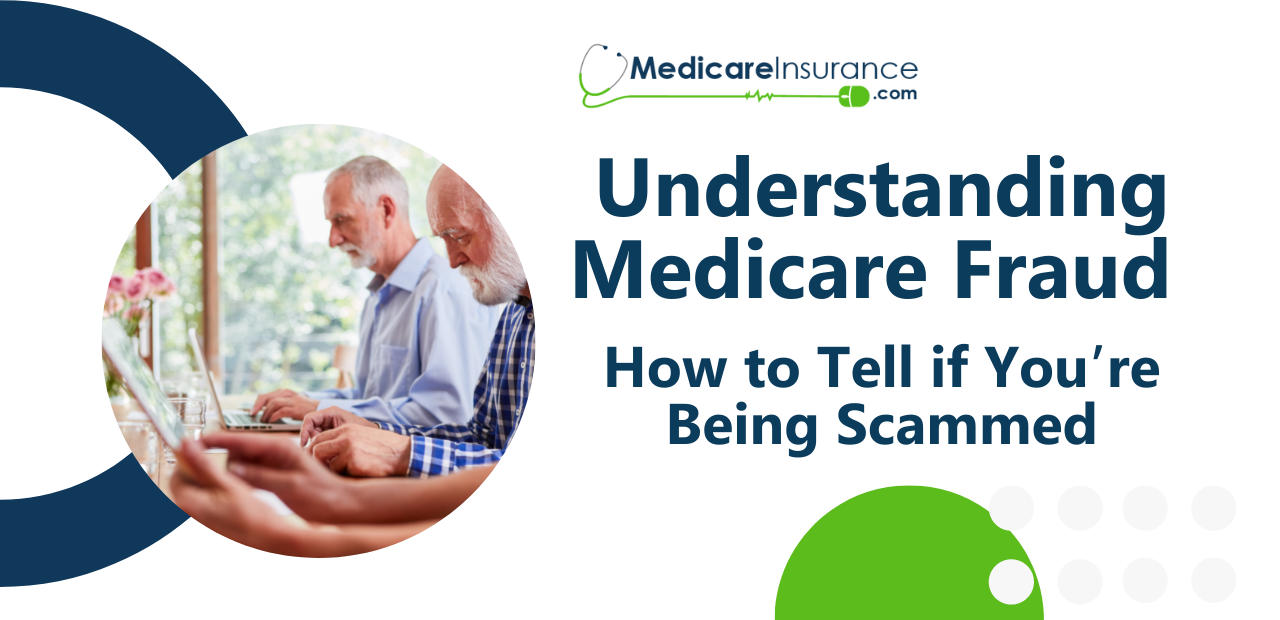With organized crime rings now participating in Medicare fraud in an attempt to make a quick and easy buck, fraud scams are becoming much more sophisticated.
The State of Medicare Fraud – These days, technology has progressed to incredible levels. As amazingly beneficial as that can be for all of us in our daily lives, it also has the unfortunate side effect of making it a little bit easier for shady people to attempt to harvest your personal information in ways you may never see coming.
This is especially true if you are a senior recipient of Medicare benefits, as there seems to be an unfortunate correlation between older individuals and susceptibility to fraud, especially if this fraud originates online.
Even if you aren’t a direct recipient of Medicare benefits, Medicare fraud and other scams aimed at taking advantage of older people can still affect you even if you aren’t a direct victim. For example, these types of scams can create a ripple effect that may cause any number of inconveniences for many Americans, including increasing health insurance premiums to higher payroll taxes designed to fund programs like Medicare and Social Security.
For this reason, understanding how to recognize and prevent Medicare fraud and other online scams is vital to keeping costs low and safety high for everyone.
What are the most common types of Medicare fraud?
While Medicare fraud can take many different forms, some of the most common occurrences may include:
- Medicare fraud committed by providers
- Medicare fraud committed by beneficiaries (or their families)
- General identity theft used to falsely obtain Medicare benefits or other personal information
Each type of fraud listed above can actually take many different forms, and not all of them are particularly easy to sniff out. For this reason, the best course of action if you feel you may be the victim of a Medicare scam is to keep a close eye on your Medicare bills, paperwork, and important information. Be sure to keep your eyes peeled for anything that seems strange or out of the ordinary.
What are some common red flags to keep an eye out for?
By now, most people are familiar with the most obvious red flags associated with fraudulent activity online, such as frequent grammar mistakes, broken English, or misspelled text. What many people may not be familiar with, however, are some of the more subtle signs of Medicare fraud that have recently been becoming much more common.

With organized crime rings now participating in Medicare fraud in an attempt to make a quick and easy buck, fraud scams are becoming much more sophisticated. Thankfully, modern scams still have a few telltale signs that can help you identify when something isn’t quite right.
While surfing online, keep an eye out for the following messaging that is most commonly associated with Medicare fraud nowadays:
- Social media posts or online ads that insist you’ll pay higher Medicare Part B premiums unless you sign up for a specific plan. In reality, your Medicare Part B premiums will never increase based on the plan you choose.
- Messaging that suggests you can switch back to your Original Medicare coverage at any time if you are unsatisfied with new coverage. The truth is, the federal government will only allow you to switch back to Original Medicare during certain enrollment periods which take place exclusively during specific parts of the year.
- Threatening that you will lose your current benefits if you do not switch plans immediately. In actuality, no legitimate insurance provider will ever tell you that you will lose your existing benefits unless you sign up for their plan, as this is a federal offense.
- Offering something for “free” on the condition that you provide your Medicare number. Legitimate insurance enterprises will never request that you provide them with your Medicare number in exchange for free products, consultations, or services. While some brokers or providers may offer free insurance quotes, they will never require your Medicare number to do so.
- Receiving random calls, emails, or direct messages from someone claiming that there is a problem with your Medicare benefits. Please understand that any vital communications pertaining to your Medicare benefits will come via regular mail. Never reveal your personal information, such as your social security number, Medicare number, driver’s license number, or state I.D. number to anyone you don’t trust online.
The Importance of Reporting and Stopping Medicare Fraud
As stated, scams pertaining to Medicare or Social Security fraud can have a ripple effect that can cause problems for many more people than simply the victims themselves. In fact, these types of scams can do a great deal of harm to civilized society as a whole.
The best way to prevent Medicare fraud from affecting you and the people you care about is to keep a watchful eye out for the aforementioned red flags (or anything else that seems fishy) and report it to the appropriate authorities.
If you suspect that providers or individuals are committing Medicare fraud, call the Medicare hotline at 1-800-MEDICARE (1-800-633-4227) immediately. You have the option to report Medicare fraud anonymously.


Join the conversation!